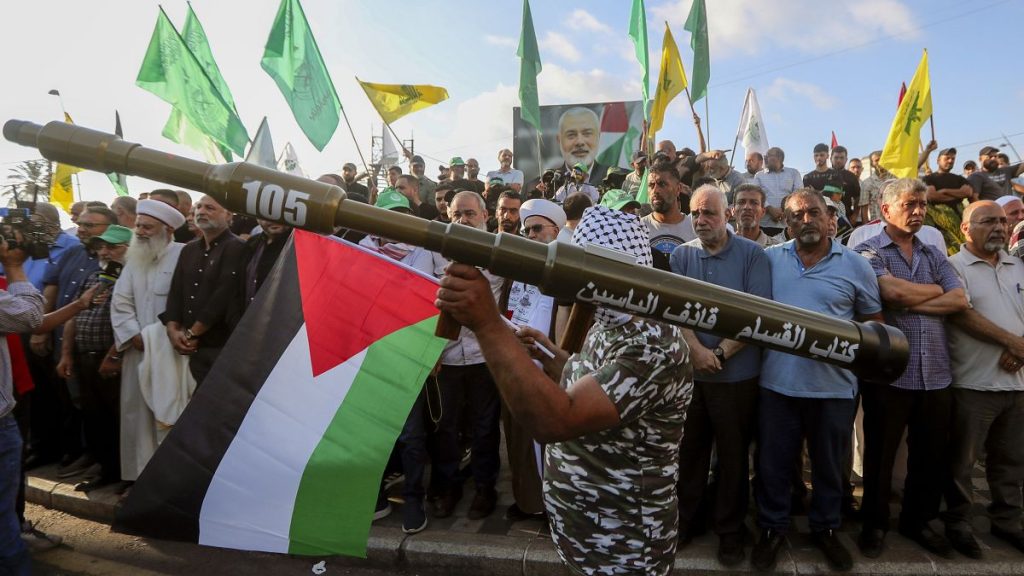The situation in the Middle East has escalated following the assassination of Hamas leader Ismail Haniyeh in Tehran, with Israeli intelligence reports indicating that Iran could launch an attack on Israel within days. In response to the growing tensions, France, Germany, and the UK issued a joint statement calling on Iran and its allies to refrain from further escalations that could jeopardize the opportunity for a ceasefire and the release of hostages. The statement also commended the efforts of Qatar, Egypt, and the United States in negotiating a peaceful resolution to the conflict.
The joint statement from the European nations emphasized that Iran and its proxies would be held responsible for any actions that undermine the prospect of peace and stability in the region. It also supported the ongoing ceasefire negotiations between Israel and Hamas, warning that potential attacks by Iran and Hezbollah could derail any progress made towards a peaceful resolution. The US has deployed a guided missile submarine to the region as a show of support for Israel and to deter any potential aggressive actions by Iran and its allies.
Despite the heightened tensions, Israeli intelligence assessments suggest that Iran has not yet made a final decision on the timing or nature of any potential attacks. The fluid situation underscores the uncertainty surrounding the conflict and the delicate balance of power in the region. Iran has indicated that it hopes any response will not negatively impact the ongoing ceasefire negotiations, acknowledging the importance of finding a peaceful resolution to the conflict that has claimed numerous lives and further destabilized the region.
The recent deaths of key figures in Hamas and Hezbollah have further inflamed the situation, with both Iran and its allies blaming Israel for the targeted killings. The retaliatory threats from Hamas, Hezbollah, and Iran have complicated the efforts of US, Egyptian, and Qatari mediators to salvage the ceasefire negotiations and secure the release of hostages in Gaza. The fragile peace talks are at risk of being derailed by the escalating tensions and the fear of further violence in the region.
The international community’s calls for de-escalation and restraint reflect the urgent need for all parties involved to prioritize dialogue and diplomacy in resolving the conflict. The joint statement from France, Germany, and the UK underscores the importance of preventing further violence and instability that could have far-reaching consequences for the entire region. The delicate balance of power in the Middle East requires a concerted effort from all stakeholders to work towards a peaceful resolution that addresses the underlying causes of the conflict and promotes long-term stability.
As the situation unfolds, the fate of the ceasefire negotiations and the release of hostages in Gaza hangs in the balance, with the specter of potential attacks by Iran and its allies casting a shadow over the fragile peace talks. The international community must continue to support the efforts of mediators and diplomats in finding a resolution that will bring an end to the violence and create a path towards lasting peace in the Middle East. The future of the region depends on the collective commitment to dialogue, de-escalation, and reconciliation in the face of growing tensions and the looming threat of further violence.


